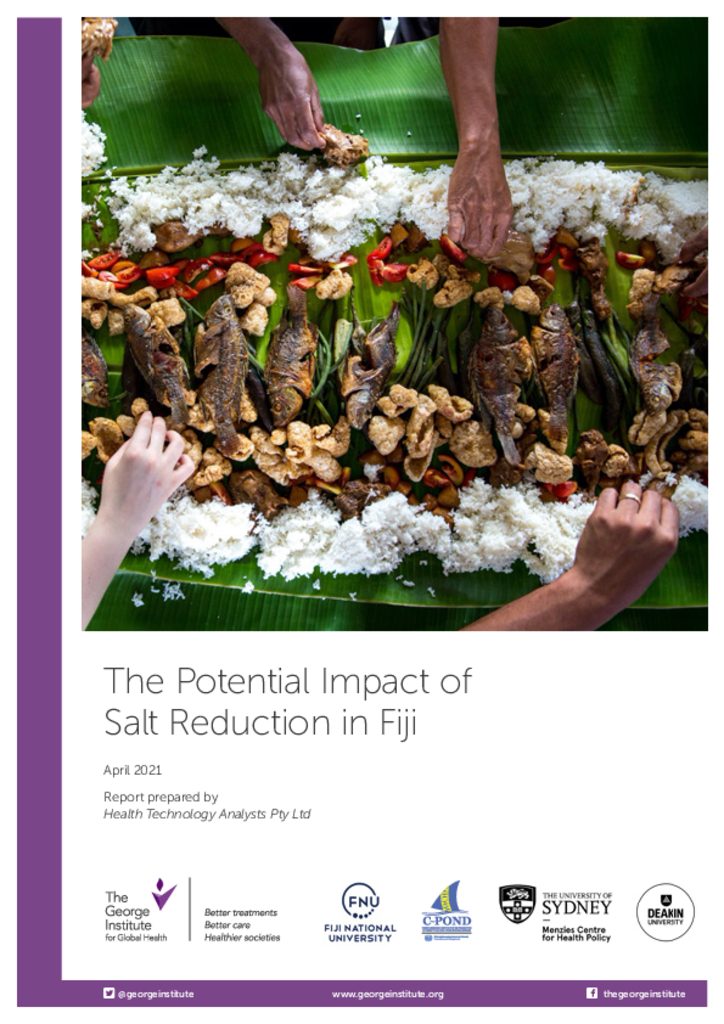
The Potential Impact of Salt Reduction in Fiji
High blood pressure is one of the most serious risk factors for cardiovascular disease (e.g. stroke, heart failure and coronary heart disease (CHD)), the leading cause of death worldwide. High blood pressure is responsible for more than half of strokes and heart attacks. In Fiji non-communicable diseases (NCDs), including cardiovascular disease, result in thousands of deaths every year and affect the lives of many more. Around 80% of deaths in Fiji are caused by an NCD and those numbers are growing.
The relationship between eating too much salt and high blood pressure is well established. Reducing salt intake is widely recognised globally as one of the most cost-effective measures for preventing NCDs.
This report assessed the potential benefits of implementing a national salt reduction program in Fiji to prevent stroke and CHD events such as heart attack, and reduce healthcare needs, informal care and productivity costs. These benefits were used to calculate the threshold cost of implementing a profitable salt reduction program from a social perspective.
The base case salt reduction target was 1 gram (g) reduction per day over a year. Results showed reducing salt intake by 1g per day for a year would potentially prevent 234 heart attacks and 72 strokes resulting in 131 lives saved and more than FJD 1.8 million in reduced costs to society each year. Considering these savings, a threshold value of FJD 2.04 per person per year would result in equivalent costs and savings per year from a 1g per day salt reduction program in Fiji.
The findings demonstrate a minimal investment in a national salt reduction program in Fiji is likely to yield a positive social return on investment for the prevention of cardiovascular events.






